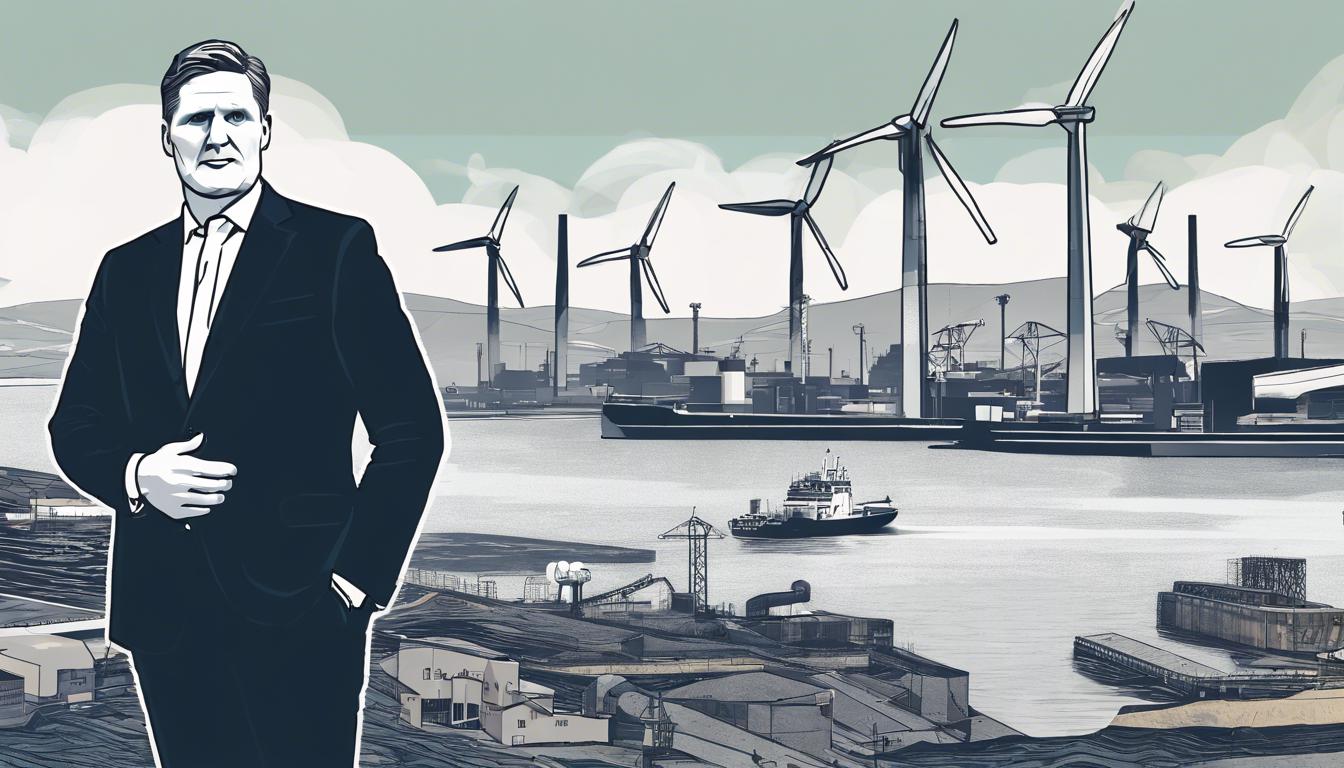Labour leader Sir Keir Starmer announces an ambitious plan to make floating offshore wind a linchpin of Britain’s energy strategy with GB Energy, a move juxtaposed against Tata Steel’s job-threatening closures in South Wales.
In a recent announcement, Labour leader Sir Keir Starmer has pledged to make floating offshore wind the main focus of GB Energy, a proposed publicly-owned clean energy firm, under a Labour administration. The initiative, unveiled during Starmer’s visit to North Wales, centers on leading the global advance in floating wind technology and entails an investment of £8.3 billion aimed at catalysing clean power, especially through floating wind farms. This move is intended not only to secure the UK’s energy future but also to stimulate job creation within the country. The Labour Party plans to fund GB Energy through a windfall tax on oil and gas producers and responsible borrowing.
Concurrently, South Wales faces economic turmoil with Tata Steel announcing the closure of both blast furnaces at its Port Talbot steelworks, a move that threatens up to 2,800 jobs. The company’s decision to transition to an electric arc furnace, due to daily operational losses, has sparked concerns over the socio-economic impact on Port Talbot and its community. The UK government has responded by setting up a £100 million transition board to support those affected, though apprehensions about the sufficiency and timing of this intervention remain.
Despite Labour’s propositions for significant financial backing aimed at preserving jobs and promoting greener steel manufacturing practices nationally, Tata Steel is proceeding with its plan, confirming the redundancies and continued operation reshuffle at the Port Talbot site. This situation has heightened unease among workers and stakeholders, fearing the onset of economic and social challenges akin to those experienced during the deindustrialization of the 1980s.
In light of Labour’s commitment to both advancing clean energy and salvaging industrial jobs, the party faces scrutiny from both the Conservative government and industrial giants. Energy Security Secretary Claire Coutinho has criticized Labour’s energy propositions as unfunded and potentially detrimental to Britain’s energy security, advocating a more cautious approach to net-zero ambitions. Meanwhile, the unfolding events at Port Talbot reflect broader challenges in balancing economic sustainability and environmental commitments in the UK’s industrial sectors.
